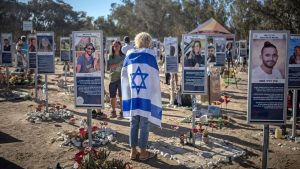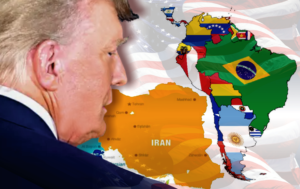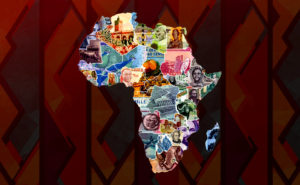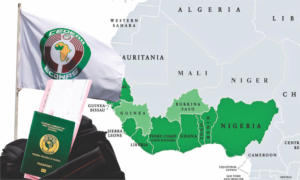Two Years On from the October 7th-Nova Festival Tragedy: Israel Reflects, Gaza Endures and Egypt Nurtures a Flicker of Peace

Two years after the Hamas-led assault that tore through southern Israel on 7 October 2023, the echoes of that day still shape every corner of Israeli and Palestinian life in motions of reminding-grief, politics and the fragile pursuit of peace.
Across Israel, memorials and moments of silence marked the second anniversary of an attack that killed more than 1,200 people and saw 251 taken hostage into Gaza. The assault was the deadliest single day for Jews since the Holocaust left a scar on Israel’s collective psyche. Yet even as the nation remembered, the sound of artillery fire from Gaza could still be heard from the site of one of the worst massacres, the Nova Music Festival grounds.

In Tel Aviv, families of the victims gathered for a memorial broadcast nationwide. Some clutched photographs of loved ones lost; others held yellow ribbons calling for the return of the remaining hostages. Prime Minister Benjamin Netanyahu described the day as one of “immense pain” but also “miraculous resilience,” vowing to “achieve all the goals of the war.”
Yet behind the rhetoric of defiance, ordinary Israelis wrestled with exhaustion and loss. Some Israelis still believe that no place feels like home anymore. Some who’s loved ones survived the Nova festival attack –“Until all the hostages come back, none of us will feel safe.”
Families of those still held in Gaza, 48 persons by Israel’s count, with 20 believed to be alive, demonstrated outside Netanyahu’s Jerusalem residence, pleading for compromise. “We need to do every compromise needed for the hostages to come back,” said protester Atalia Regev. Opinion polls show that nearly 70% of Israelis now favor ending the war if it brings their loved ones home.
While Israelis mourned, Gazans continued to live under bombardment. In Gaza City, air and artillery strikes shake neighbourhoods through the night, in some places like Tal al-Hawa, Rimal, Sheikh Radwan and Shati refugee camp among them.
Emaan al-Wahidi, a mother who lost her 17 year old son last year, every evening brings renewed terror. “When the evening comes, the fear comes with it. We sleep holding each other, my youngest child’s head on my chest. Every second we look at the news to see if the ceasefire is real, or if the war will come back to us” – She told the BBC.
Hospitals, already collapsing under months of conflict, tell the same story of human fragility. UNICEF spokesman James Elder described mothers and babies sharing single oxygen sources at Nasser Hospital in Khan Younis. “Three babies, three mothers, one bed and one oxygen line. They rotate the oxygen 20 minutes each,” he said. Gaza’s health ministry reported that only 13 of 38 hospitals remain partially functional.
The Israelis anniversary was not just about remembrance but about identity on how to continue living, celebrating and creating after trauma. Artists and musicians gathered near the ruins of the Nova Festival to perform quiet tributes. Families of the fallen lit candles and played the music their children once danced to. A father, whose daughter was killed at the festival said – “This is how we fight back. We remember them by refusing to stop living.”
In Palestinian communities, cultural traditions of mourning have intertwined with acts of survival. Families baking bread together in rubble-filled courtyards, teachers running informal lessons for displaced children. “Our strength is not in weapons. It’s in how we teach our children to keep believing that peace is possible”, said a Gaza schoolteacher.
![]()
As memorials unfolded, negotiators from Israel and Hamas met indirectly in the Egyptian Red Sea resort of Sharm el-Sheikh, trying to hammer out a U.S.-backed peace framework. The talks mediated by Egypt, Qatar and the US envoys including Jared Kushner and Steve Witkoff, have centered on five key issues: a permanent ceasefire, prisoner-hostage exchanges, Israeli withdrawal maps, humanitarian aid, and post-war governance of Gaza.
A senior Palestinian official told the BBC that the talks were tough and without tangible results, citing disagreements over guarantees that Israel would not resume fighting. Still, UN Secretary-General António Guterres urged both sides to seize a historic opportunity to end the war, calling the 7 October attack “a horror forever seared into our collective memory”.
According to Gaza’s health ministry, more than 67,000 people have been killed in Israel’s ongoing offensive. Behind those numbers are families torn apart, communities erased and generations traumatized on both sides of the border. In Israel, the memory of 7 October remains an open wound; while to the Gazans, every night of bombing reopens it anew.
At sunset on the anniversary, the sounds of prayer, sirens and distant shelling blended across the region as a haunting reminder of how intertwined Israeli and Palestinian fates have become. In the words of an Israeli survivor from the Nova festival, “We remember not just who we lost, but what kind of future we still want.”
And across the border, Emaan al-Wahidi whispered almost the same hope: “I pray that one day, my children will sleep without fear.”
Two years on, both Palestinians/Israelis remain suspended between pain and possibility, between the memory of a single day and the dream of a peace still just out of reach.









I was suggested this website by my cousin. I’m not sure
whether this post is written by him as nobody else know
such detailed about my difficulty. You are amazing!
Thanks!